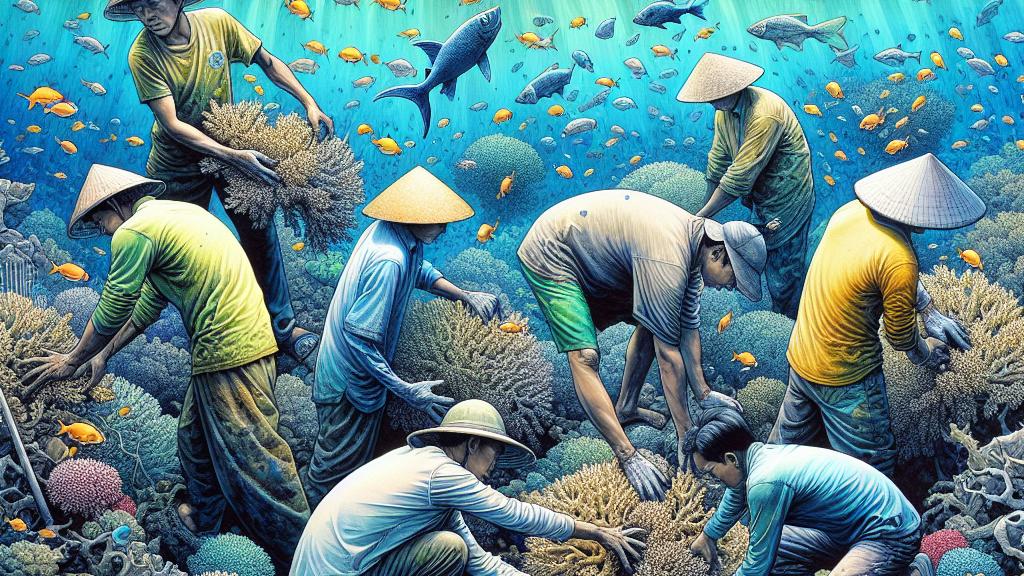Call for New Approaches in Coral Reef Restoration Funding
Overview
- A transformative shift in funding strategies is vital for coral reef restoration efforts.
- Engaging and empowering local communities is essential for the long-term success of restoration projects.
- Integrating social sciences into funding models can enhance both the effectiveness and impact of restoration initiatives.

The Need for Change in Funding Strategies
In the vibrant yet vulnerable waters of Southeast Asia, coral reefs are facing an unprecedented crisis. Recently, a group of passionate researchers from Indonesia, the Philippines, and Vietnam embarked on an enlightening study tour in Australia. They collectively articulated a powerful message: the current funding models are falling short. The way forward cannot simply be to fund more research; instead, we need to cultivate local governance and foster real community engagement. Imagine a scenario where local fishermen and community members actively participate in restoration projects. By utilizing their unique insights and deep understanding of the ecosystems around them, we can create initiatives that resonate with cultural significance and environmental sustainability. Such a concerted effort could turn the tide in coral restoration, providing not just ecological restoration but also social empowerment.
Incorporating Human Dimensions into Restoration
The integration of social sciences into coral restoration is not just a novel idea; it's a necessary evolution. Dr. Chris Cvitanovic eloquently stresses this point. What if we envisioned restoration projects that work in tandem with local economies? For instance, by reviving damaged coral reefs, we could stimulate eco-tourism, allowing local communities to benefit economically while restoring their marine environment. Imagine tourists flocking to witness the rebirth of vibrant coral gardens, generating income for families that depend on the sea for their livelihoods. This mutually beneficial relationship underscores a fundamental truth: conservation efforts are most effective when they involve the very people who live within these ecosystems. By fostering a community-centric approach, restoration projects become not just a means to save corals but also a pathway to sustainable development, enriching both nature and the lives of those who protect it.
A Global Challenge Requiring Collaboration
The alarm bells are ringing louder than ever for our coral reefs, prompting urgent global initiatives like the Coral Research & Development Accelerator Platform (CORDAP). This platform serves as a rallying point for innovative thinkers and conservationists, all united by a common goal: to transform coral conservation through rapid research and actionable solutions. With estimates suggesting that two-thirds of the world’s coral reefs are already lost, we stand at a critical juncture. The future of these ecosystems hinges on our ability to collaborate effectively—scientists, local communities, and policymakers must unite in a shared effort. Picture this: restoration projects not only employ cutting-edge science but also integrate traditional ecological knowledge, resulting in holistic strategies that honor both modern and ancestral insights. The stakes are high, but the potential rewards are even greater. We have an incredible opportunity to heal our oceans while securing a sustainable future. By embracing innovative, collaborative approaches, we can envision a world where healthy coral reefs sustain both biodiversity and local economies for years to come.

Loading...